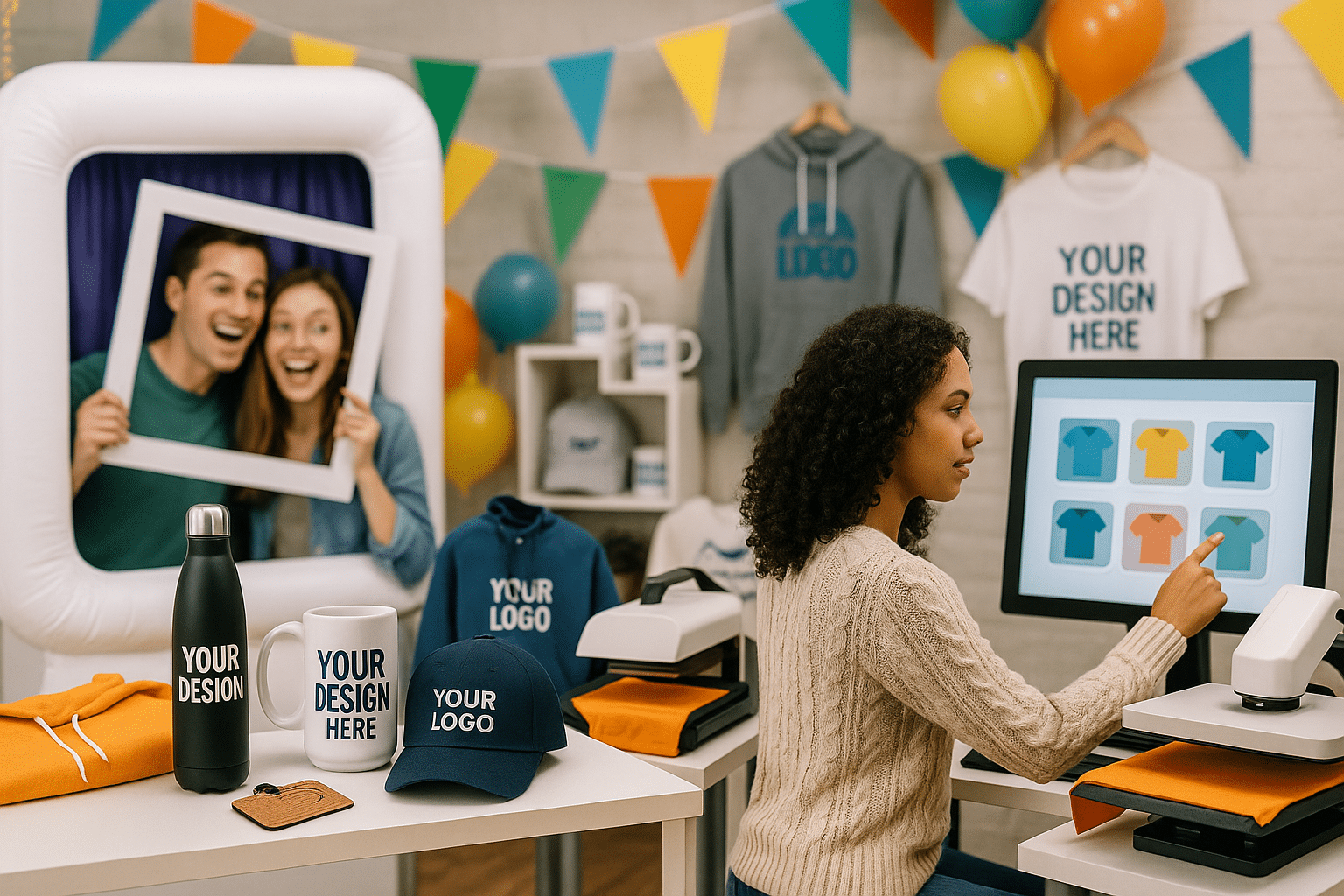Innovative Event Planning Tips for Success
Innovative Event Planning Tips for Success

Planning an event can be an exhilarating yet challenging endeavor. From understanding the latest interactive trends to DIY inspirations and marketing success stories, this article dives deep into essential tips that can make your next event memorable. Enjoy insights on diverse products like thermal bottles and photo booths, and discover strategies to effectively elevate your brand.
Understanding the Basics of Event Planning
Understanding the basics of event planning is crucial for anyone looking to host an unforgettable occasion. As event planners, we must navigate various facets, including budgeting, site selection, and comprehending our target audience. By focusing on these foundational aspects, we can create events that are not only memorable but also tailored to meet the specific needs of attendees, enhancing engagement and satisfaction.
When it comes to budgeting, having a clear and comprehensive financial plan serves as the backbone of your event. Begin by identifying all potential expenses, which typically encompass:
– Venue rental fees
– Catering costs
– Audio-visual equipment and technology
– Staffing needs
– Marketing and promotional materials
– Decorations and ambiance
It’s essential to conduct thorough research to understand the realistic costs associated with each category. The keyword “photo booth cost” can be particularly helpful here; surprisingly, many organizers overlook this integral element. A well-placed photo booth can serve as a central attraction, providing fun and lasting memories for guests. Balancing quality with cost is vital—while you might be tempted to opt for the lowest-priced options, consider the overall impact on your event. Not only can an engaging photo booth enhance guest experience, but it can also serve as a focal point for social media sharing, boosting event visibility.
Once budgeting is in place, the next step is site selection. The venue can greatly affect the tone and success of your event. Here are critical factors to consider when selecting your venue:
– **Accessibility**: Ensure the location is convenient for your target audience. An easily accessible venue encourages higher attendance.
– **Size and Capacity**: Choose a venue that can comfortably accommodate your anticipated guest number. A cramped space can deter engagement, while an overly large venue may lead to a disjointed atmosphere.
– **Amenities and Services**: Assess the services offered, such as AV support, catering options, and restroom facilities. Many modern venues are equipped with state-of-the-art technology that can enhance your event experience.
– **Ambiance and Style**: The venue’s aesthetic should align with your event branding and theme. A cohesive experience sends a message to attendees that your event is thoughtfully executed.
Moreover, understanding your target audience is paramount when planning an event. Market research can provide valuable insights about your guests’ preferences, interests, and expectations. For instance, if your target demographic includes millennials and Gen Z attendees, incorporating interactive elements and trendy attractions, such as a “hire photo booth” option, could boost engagement. Not only do these booths serve as entertainment, but they also provide a digital keepsake for guests to share on their social platforms, amplifying your marketing reach.
Strategic marketing and communication play a vital role in event planning as well. The success of an event often hinges on how effectively you generate interest and inform potential attendees. Utilize multiple channels to promote your event:
– **Social Media**: Utilize platforms such as Instagram, Facebook, and Twitter to create buzz. Engaging visuals, such as previous event photos or sneak peeks of what’s to come, can heighten interest.
– **Email Campaigns**: Deliver tailored messages to your audience through targeted email campaigns. Segment your lists to create personalized content that resonates with different groups.
– **Content Marketing**: By creating engaging blog posts or videos, you can provide useful information related to your event and industry. Articles showcasing DIY inspiration or innovative event ideas can position you as a thought leader while drawing traffic to your website—using keywords like “buy a photo booth” can enhance your SEO strategy.
Behind-the-scenes insights can also pique your audience’s interest and create a relatable connection. Sharing glimpses of your planning process or challenges you overcame can humanize your brand. For example, consider writing about setting up for a large gathering, such as how you selected your thermal bottles and mugs as eco-friendly swag for attendees. Providing thoughtful giveaway items not only enhances guest experience but also reinforces your brand’s identity. Personalized items like caps and luggage tags can leave a lasting impression, and your effort will be appreciated by your guests long after the event.
Logistics management is often where many events falter. Develop a comprehensive timeline leading up to the event, breaking down tasks by each week or month. This list should include precise delivery schedules for items like laser-engraved products, installation timelines for the photo booth, and setup times for all decor elements. Staying organized ensures that all aspects of your event come together seamlessly. Be proactive in communication with all involved parties, including vendors, staff, and venue managers, and leverage technology with planning apps to keep everyone on the same page.
Finally, post-event evaluations are often overlooked but are so crucial for future success. Gather feedback from guests to understand what worked, what didn’t, and how to improve future events. Analyze social media engagement, post-event surveys, and even anecdotal feedback to make informed adjustments.
In summary, mastering the essentials of event planning involves a strategic blend of budgeting, site selection, audience understanding, marketing, and logistical management. Each element is interlinked, playing a crucial role in achieving a successful event. By enhancing your approach with innovative trends and creative solutions—from interactive photo booths to unique branded giveaways—you can elevate your events and leave a lasting impact on your guests.
Conclusions
In conclusion, effective event planning requires a blend of creativity, strategy, and attention to detail. By incorporating modern trends and memorable elements like photo booths and branded merchandise, you can create an engaging experience that resonates with your audience. Remember, successful events enhance brand visibility and foster meaningful connections.




